On June 17, 2020, the World Peace Forum Special Video Conference held its fourth sub-forum titled "China-US Relations in Post-Pandemic Era." which was organized by the Center for International Security and Strategy (CISS) at Tsinghua University and moderated by Mme. Fu Ying, Chairperson of CISS.
At the forum, questions were answered by keynote speakers including Kevin Rudd, President of the Asia Society Policy Institute and former Prime Minister of Australia, Zhu Min, the current chairman of the National Institution of Financial Research Institute at Tsinghua University and former Vice President of IMF, Susan Shirk, the current Chair of the 21st Century China Center at the University of California-San Diego and former Deputy Assistant Secretary of State, USA, and Professor Wang Jisi, President of the Institute of International Strategic Studies at Peking University.
Before the discussions, Mme. Fu Ying pointed out that both China and the U.S. are obligated to maintain world peace and promote global cooperation. The outlook for China-U.S. relations faces great uncertainty under the current circumstances, and the decisions made by the two countries will profoundly shape the future for themselves and the world.
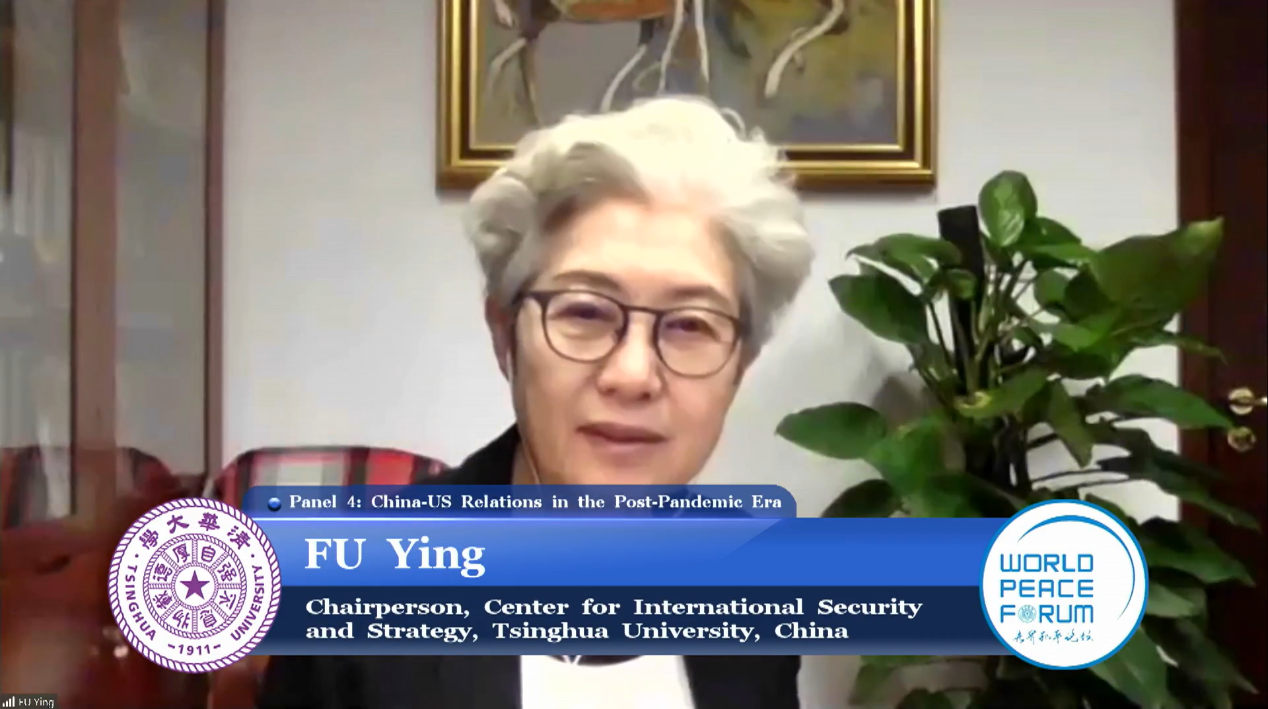
In his speech, Kevin Rudd referred to the Taiwan issue as the core issue of U.S.-China relations and the critical issue amidst current tensions. He had high expectations for the upcoming meeting between Yang Jiechi and Mike Pompeo and believed that it is essential for the two countries to advance dialogue at this critical moment. He hoped that the two sides would seize the opportunity, think rationally and ascertain each other's bottom line, in order to establish clear mutual understanding.
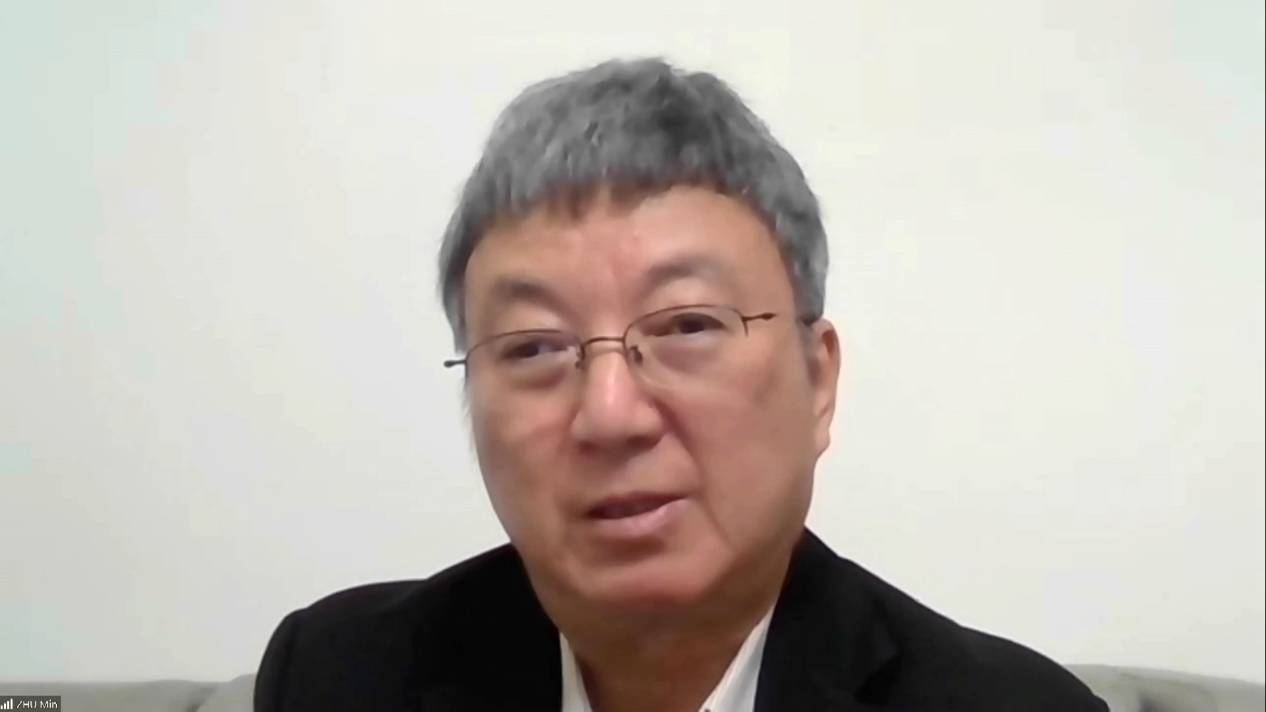
Zhu Min reckoned in his remarks that China and the U.S. could cooperate in global public health governance, reopening the economy, global supply chain, and others to promote well-being across the globe. As vaccine research and development is currently the most pressing issue, the two countries should play a leading role in promoting cooperation between scientists and deliberate on the global production and distribution of vaccines. As economies gradually reopen, China and the U.S. should push for the establishment of common standards for the movement of people and goods and develop a unified system for detecting, tracking, tracing, and treating, so as to promote the flow of production factors worldwide. In terms of trade, supply chain, and high technology, the two countries have an obligation to ensure a stable supply chain, support high-tech companies to move more freely across countries, and push the world economy and trade back on track.
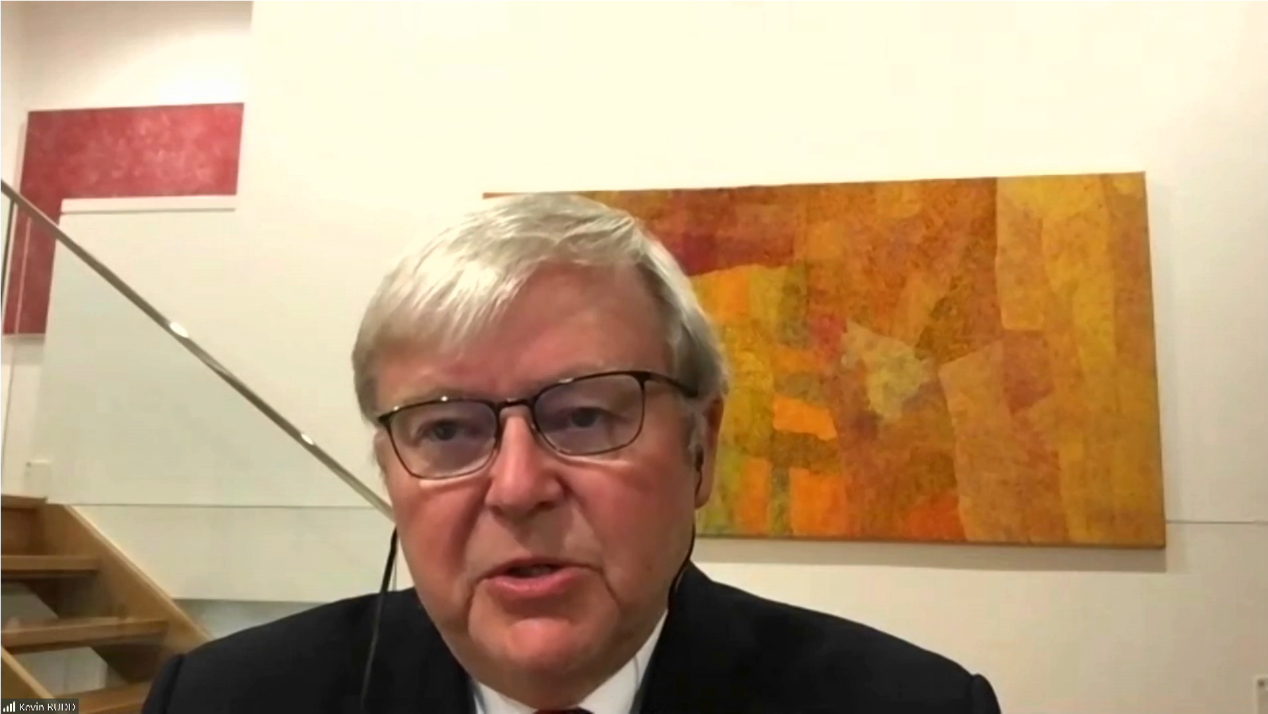
Susan Shirk expressed regret that U.S.-China relations did not withstand the test of the pandemic and believed that no one would be the winner when the two countries compete for global leadership in this crisis out of their own interests. Both the U.S. and China face domestic problems during the pandemic; in fact, public opinions in both countries expect their politicians to commit to domestic issues instead of airing hawkish rhetoric or "flexing muscles" toward other nations. The U.S. election may be an opportunity for the two countries to adjust their relations with each other. The leadership of both the U.S. and China should rethink where their bilateral relations will go and adjust policies to serve genuine national interests. Shirk emphasized that U.S.-China relations should be pragmatic in the face of the global crisis and should not be dominated by ideologies.
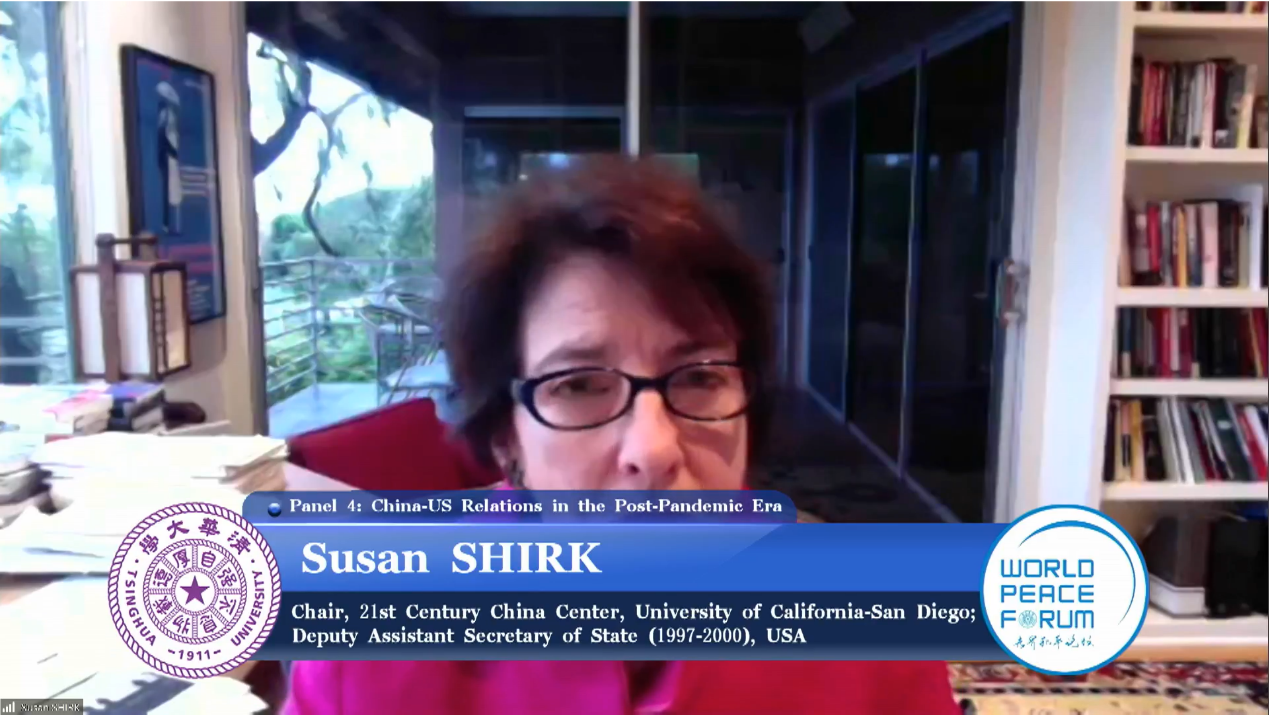
Wang Jisi analyzed the current obstacles in China-U.S. relations and believed that to avoid an whole-scale deterioration, both sides need to make efforts to avoid war and maintain a certain scale of technological engagement and sustain global finances as well as communication and cooperation in the education sector. Looking back at the world history of the past 40 years and the history of China-U.S. relations, the cost of a China-U.S. decoupling would be even greater than that of the U.S.-Soviet Union confrontation. For the U.S., there will be a possible window for improving the bilateral relations after the election. The post-election strategies laid out by U.S. leaders will play a decisive role in the direction of China-U.S. relations. He noted that there are many uncertainties in the post-pandemic era and that China-U.S. relations may still deteriorate for some time to come, but it is not yet clear how.
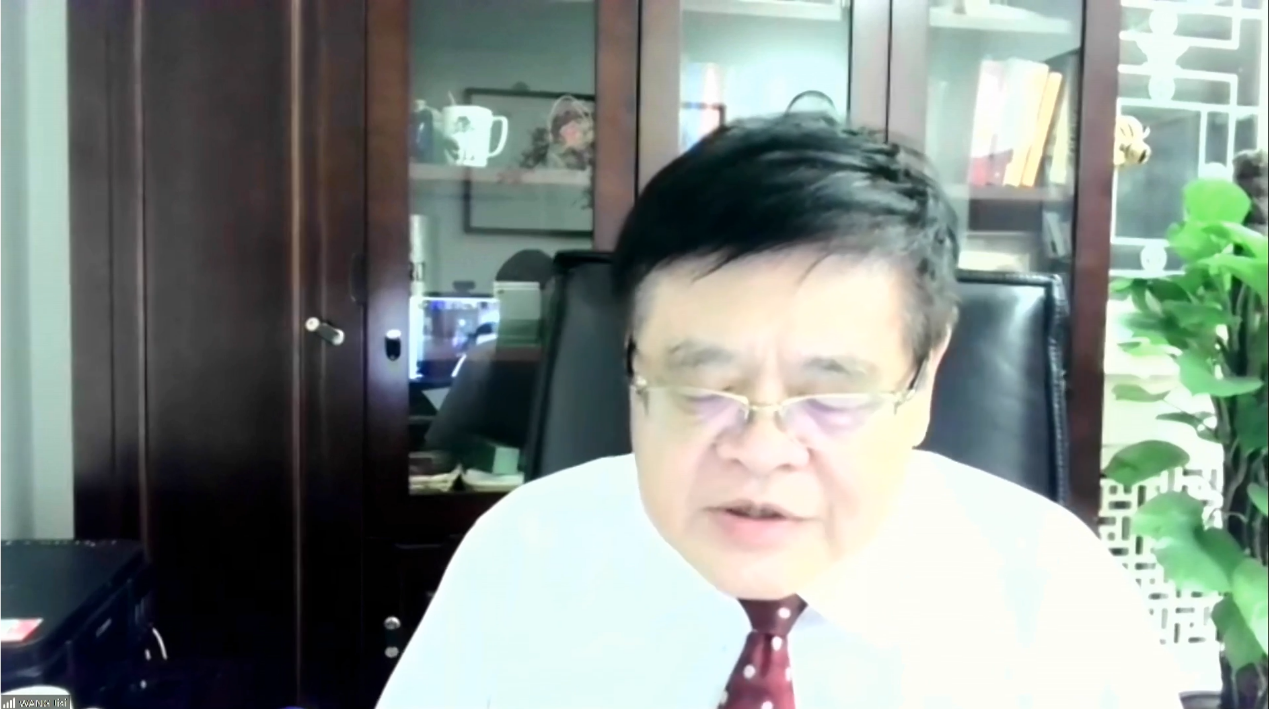
After delivering keynote speeches, panelists answered media questions on the impact of the pandemic on the China-U.S. economic and trade agreement, the China-U.S. decoupling and the solutions, the impact of the U.S. election on China-U.S. relations, China-NATO relations, etc.
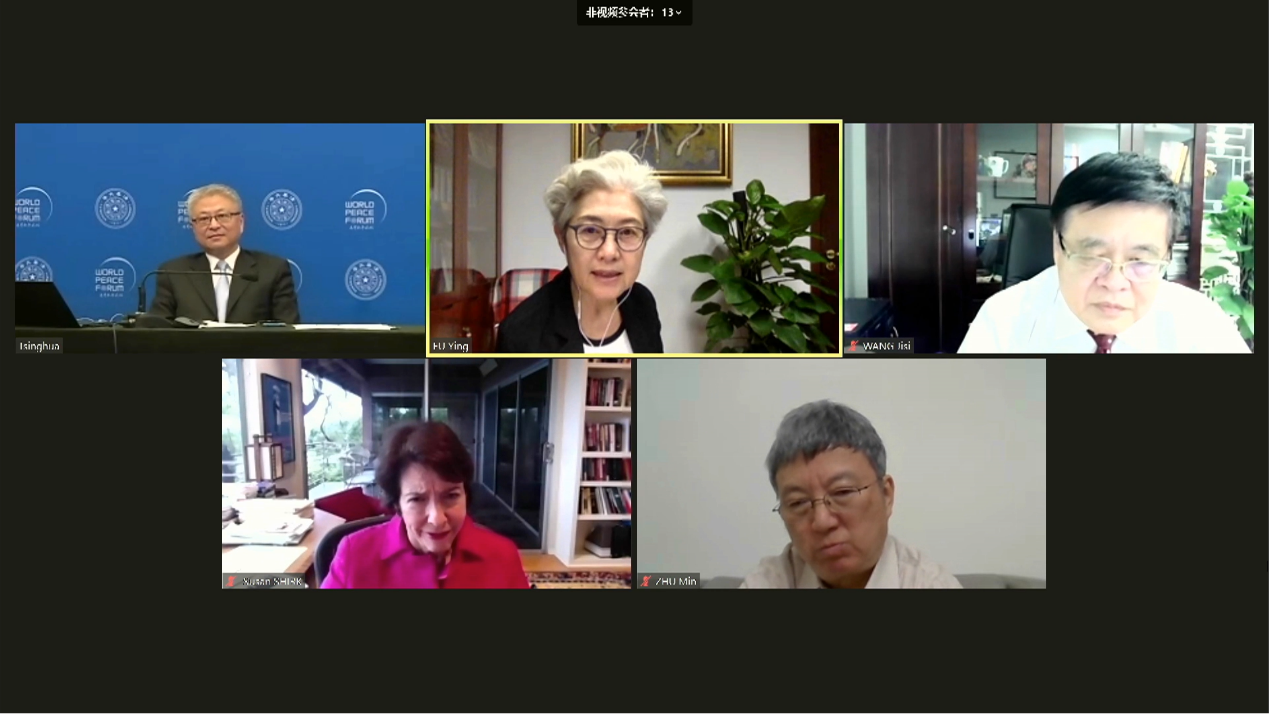
Mme. Fu Ying closed the meeting with an emphasis on the importance of dialogue in this complicated and changeful situation, expressing hope that China and the U.S. can find their way out of the predicament through dialogue.The World Peace Forum is China’s first annual high-level non-governmental global security forum. It is hosted by Tsinghua University, co-organized by the Chinese People’s Institute of Foreign Affairs, and organized by CISS. Since its inception in 2012, the forum has been held eight times. Due to the pandemic, the 9th World Peace Forum is expected to be held in 2021. At this forum, former politicians, heads of think tanks, and strategists from countries gather to discuss new security challenges facing the world today, propose constructive solutions, and strive to promote security cooperation in the international community.
